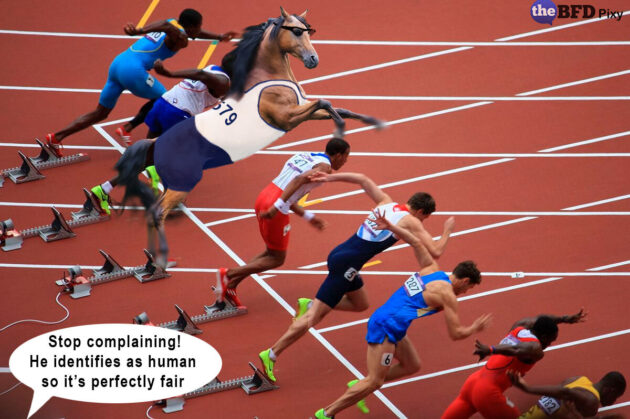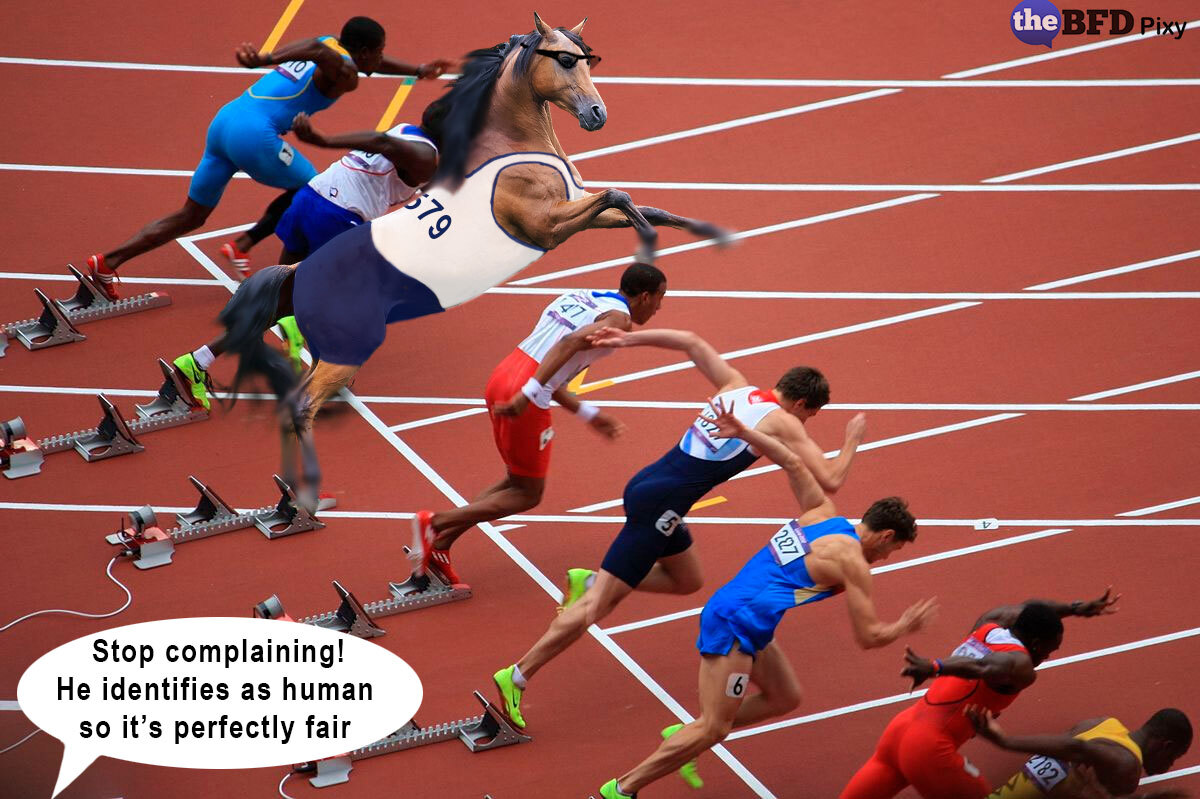Margaret Somerville
mercatornet.com
Margaret Somerville AM, DSG, FRSC, DCL is Professor of Bioethics at the University of Notre Dame Australia School of Medicine (Sydney campus). She is also Samuel Gale Professor of Law Emerita, Professor Emerita in the Faculty of Medicine, and Founding Director of the Centre for Medicine, Ethics and Law Emerita at McGill University, Montreal.
In Australia’s election campaign, politicians are stepping very warily around transgender issues when confronted with questions, especially from the media, about where they stand on them. They often give a vague response.
This is understandable. Ethical issues raised by “gender dysphoria” are a political hot potato, a no-win situation for politicians. They fear, with reason, as one of my students said when he explained why he had not said what he believed in class, “The consequences would be too dire”.
Media coverage of calls for the Liberal Party’s candidate for Warringah, Katherine Deves, to be de-selected on the basis she made harmful and disrespectful comments about transgender people has been substantial. Many people, including myself, agree with this assessment of her comments.
We all need to keep in mind, however, that respect, like trust, only exists where it is mutual. Automatically labelling anyone who questions the wisdom of an LGBTQIA+ stance as homophobic or transphobic is also not respectful, as I know from personal experience.
The issues raised by gender dysphoria are broad and complex. Good facts are essential for good ethics and the medical science on causes, treatments, impact on athletic performance, and so on, are in dispute.
The people with gender dysphoria are often children, which complicates the ethical balancing of respecting the person’s right to autonomy with both society’s obligation to protect them and medicine’s guiding principle of “first, do no harm”. I will not discuss such wider issues in this article, but they need to be kept in mind.
First, sex and gender are often confused with each other. Sex is a biological fact, gender is a culturally assigned characteristic. The frequently used term, “assigned sex at birth”, wrongly assumes sex is a choice and can be changed. It cannot. “Assigned gender” can be changed. A transgender woman is a biological male with female gender. The issue I will address is whether transgender women should be permitted to compete in women’s sport, when their biology gives them a major physical advantage.

This issue throws us into what is sometimes called in applied ethics, a “world of competing sorrows”. This means that there is no “no harm” option available and we must decide who will be harmed, in this case, transgender women by their exclusion from women’s sport or non-transgender women by the inclusion of the transgender women with whom they are not competitive.
One ethical principle that might help us in allocating the inescapable harm, whichever way we decide, is a presumption in favour of the most vulnerable, most in need persons, although it is highly likely we will not agree on which of the two groups this is.
As well, there may be no “one size fits all” response to the ethical acceptability of the inclusion or exclusion of transwomen athletes in female only sports events. In making a decision, we must take into account a broad spectrum of risks and harms, which include those both on and off the field. Depending on the nature of the particular sport and the relevant situation, for example, recreational as compared with professional levels of play, and so on, the relative risks and harms of inclusion or exclusion could vary and, hence, the ethical acceptability of a decision in that regard.
Whichever way we decide, we should do so with “moral regret”. This requires that when, for reasons of ethics, something we do or stand for hurts others, even though we believe ethics requires that we do or stand for that, we should still regret the hurt it causes, that is, we recognise and express sorrow for the suffering our decision inflicts.
Our decision must also conform to the requirement that it is the least invasive, least restrictive alternative reasonably available and likely to achieve the justified goal which we seek, that is either to create a fair, level playing field for non-transgender women or to be inclusive of transgender women.
This raises the issue of what constitutes fair and equal treatment. The transgender community claims that respect for equality requires them to be allowed to participate in women’s sports and to exclude them is wrongful discrimination. However, treating people equally might not be fair.
Imagine three people standing behind a fence around a cricket oval. None of them can see over the fence. The tallest one needs only a small box to stand on to see the game. The next person needs a medium box to see. And the third short person a much larger box. Giving them all the small box is to treat them equally, but unfairly. It merits noting that Sport Australia’s Guidelines for the inclusion of transgender and gender diverse people in sport, human rights informing principles call for equality but not fairness.
One reason biological women are not competitive with biological males of whatever gender is that biological males have much higher levels of testosterone, which is a performance-enhancing hormone. One proposed solution is to have transgender women take drugs to reduce their natural testosterone to a level consistent with being a biological female.
This raises the thorny issue of doping in sport, which became recognised as a major problem in the late 1970s and early 1980s with women swimmers from East Germany and the Soviet Union winning record numbers of Olympic gold medals. Many of these women were taking performance-enhancing drugs, which masculinised the appearance of their bodies and gave them a physical competitive advantage.
In the 1984 Seoul Olympics, Canadian athlete Ben Johnson set a new record for the fastest time ever recorded in the 100 metre sprint. He was the toast of the country for a short time — until his drug test came back positive for anabolic steroids, a performance enhancing drug. He was stripped of his two gold medals and suspended from competition for two years. In 1993 he again tested positive and was banned from competition for life. The term “drug cheat” was coined.
Canada was devastated; their hero had fallen irrevocably. The Government responded immediately by funding the establishment of an independent non-profit body, the Canadian Centre for Drug Free Sport, later renamed the Canadian Centre for Ethics in Sport (CCES). Its informing principle was “Play Fair” and its objectives and mission to implement that outcome were by eliminating the use of performance-enhancing drugs and promoting ethical, healthy and fun sporting activities.
The World Anti-Doping Agency (WADA) was founded in November 1999. It lists the drugs athletes are prohibited from using, but it also has Therapeutic Use Exemption guidelines (TUE) to allow use of prohibited drugs for necessary medical treatment. In 2017 it produced TUE Physician Guidelines, Transgender.
It states:
The exclusive purpose of this medical information is to define the criteria for granting a Therapeutic Use Exemption (TUE) for the treatment with substances on the Prohibited List to transgender athletes. It is not the purpose of this medical information to define the criteria for the eligibility of these athletes to participate in competitive sport, which is entirely left to the different sporting federations and organizations. …
Since testosterone is the critical factor influencing performance in sports, it is important that the criteria for the granting of a TUE ensure that both transgender male and transgender female athletes have physiological androgen exposure within the range of the non-transgender male and non-transgender female athletes with whom they compete.
In short, WADA only deals with what the medical evidence requirements would be for a TUE permission to use cross-sex hormones. It ducks the issue of whether trans athletes taking these drugs should be allowed to compete in their transgender category.
WADA was founded to prevent the use of performance-enhancing drugs. However, the issue faced in cross-sex hormone treatment for transwomen is whether performance dis-enhancing drugs to reduce natural testosterone levels should be allowed as a TUE. (In transmen the question is whether performance-enhancing testosterone should be allowed.)
In a November 2021, the International Olympic Committee released its “IOC Framework on Fairness, Inclusion and Non-Discrimination on the Basis of Gender Identity and Sex Variations”. It focused on respecting the human rights of all athletes, downplayed the relevance of high testosterone levels in transwomen athletes and abandoned testing for testosterone levels. They acknowledged that these were only recommendations and the decision about inclusion of transgender athletes was up to individual sports federations. The IOC’s conclusions regarding testosterone levels in transwomen have been strongly criticised, including by a group of medical experts.
So, can excluding transwomen athletes from exclusively female sporting events be deemed wrongful discrimination, that is, a breach of human rights?
Excluding men has long been accepted as justified discrimination to allow women to compete on a level playing field. The same justification applies to age-restricted events for young people and, increasingly, to requiring people to be over a certain age to participate. Likewise, participation in the Paralympics is restricted to people with a disability and in the INVICTUS Games to wounded War Veterans. In short, the exclusion of a certain group, transwomen, would not be unique. The question is: can it be ethically justified?
Transgenderism has been politicised and is being used as a weapon in promoting the values and ideology of the LGBTQIA+ movement and the sporting arena is now one locus of the ensuing battles. Great care needs to be taken to avoid serious harm to people on both sides of the debate affected by how the issue of including transgender people in single-sex sports events is dealt with; they include the community as a whole, not just transgender people or their non-transgender competitors. Human beings are not pawns to be used in political gamesmanship or ideological pursuits.
This article was originally published in The Weekend Australian.

